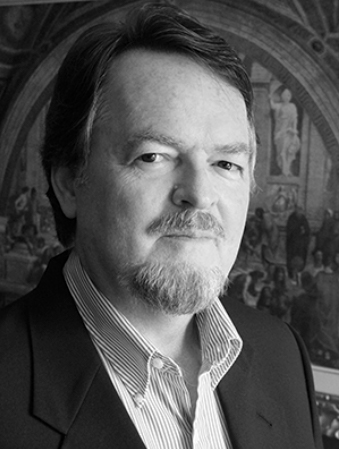Jesus reformed the Old Covenant
by | Posted February 14th at 3:28pm
“…blessed are your eyes, for they see, and your ears, for they hear” (Matthew 13:16)
Post 1: New Covenant Series
The Metaphor of Willful, or of Obstinate Perception
God used metaphors throughout the old and new covenant periods, to unlock the mystery of Israel’s rejection or acceptance of Jesus their Messiah and obedience to Yahweh’s — God the Father’s — will and covenants.
Ears to hear must love to hear from God Two of the key metaphors used throughout scripture are 1. “You have eyes to see but cannot see”; and 2. “You have ears to hear but cannot hear”. Both describe a mental attitude of rebellion and obstinacy, an act of the will, of shutting off one’s intellectual reasoning capacity to perceive the truth, versus allowing the opening of the mind to an honest perception of the Holy Spirit’s guidance. This was a prevailing attitude among the educated leaders of Christ’ day. It is also an attitude that we find today — a difficulty seeing the that the New Covenant in Christ, is in fact, new and different from the Old Covenant.
When Stephen opened up the scriptures as he was on trial for his faith in Jesus as the Messiah, the Jews rather than hearing the new covenant viewpoint about Jesus as noted in Acts 7:57, “cried out with a loud voice and stopped their ears and rushed together at him” to stone him. Stephen went back to the roots of the promises made to Abraham, their forefather, saying: “Brothers and fathers, hear me. The God of glory appeared to our father, Abraham…” Try to get a visual of this as the narrative gets interrupted with a mad crowd, furious, and holding their ears in contempt with an attempt to not hear the truths that Stephen eloquently preached. With boldness, he stood trial and referenced this metaphor of Scripture: “You stiff-necked people, uncircumcised in heart and ears, you always resist the Holy Spirit. As your fathers did, so do you” (v 51). Thus we see that the symbol of ear-stopping is contempt for truth coming directly from God, the Holy Spirit.
Alas, “Now when they heard these things they were enraged, and they ground their teeth at him. But he, full of the Holy Spirit, gazed into heaven and saw the glory of God and Jesus standing at the right hand of God. And he said, ‘Behold, I see the heavens opened, and the Son of Man standing at the right hand of God.’”. (vs 54-56) Consider how you might turn God off when he is trying to bring a message to you, to restore you and bring you into a relationship with Him.
As Jesus confronted Israel’s spiritual leaders and priests, He made it clear that the majority of them were not seeing what the Old Testament scriptures indicated about their coming Messiah. For this reason, His unfolding a new revelatory conception of how God would now relate to them was unwelcome. (see John 9:41) He further said to His disciples privately, “Blessed are the eyes which see the things you see”( see Luke 10:23; Matt 13:14-15) Antithetical to his view of his faithful disciples, he quoted Isaiah regarding the impudent spiritual leadership of his day who fought against and ignored His Word:
“You will indeed hear but never understand, and you will indeed see but never perceive. For this people’s heart has grown dull, and with their ears they can barely hear, and their eyes they have closed, lest they should see with their eyes and hear with their ears and understand with their heart and turn, and I would heal them.” (Matt 13:14-15)
After His resurrection, John indicated that Jesus recommends that His church allows Him to reform their ways that they may see in Rev 3:18.
Peter’s opening words at Pentecost draw on new covenant themes, such as the forgiveness of sins and the indwelling of the Holy Spirit (Acts 2:38) to lead the people, superior to the unfaithful leadership of the Jewish priesthood.
Paul, after accepting Jesus, after he had persecuted Stephen and had many Christians killed, he incorporated these ideas in his writings and states that the new covenant forms the core of his ministry (2 Cor 3:6). There is a language about the “washing of regeneration and renewing by the Holy Spirit” (see Titus 3:5) He reflects the concept of the awakening shift away from legalism to a new arrangement with God that would ruin the reputation of the current priestly work and the status of the priests. Via the Holy Spirit’s guidance, the people would move away from the priestly leadership of the Jews to hear from God directly.
This also provides the background for Paul’s comments about the resurrection of those who are dead to sin (Rom 6:5–11; Eph 2:1–10). In Acts 28:21-29 Paul explained the scriptures about Jesus to the Jews, the most of whom left without understanding or believing. Paul clearly stated that the Jews did not care to understand the Gospel message in Rom 11:8.
Faith can only come by the honest hearing of the Word of God which occurs by reading the Bible and listening to those who minister the Word of God. When reading the Gospels, you will find Jesus remapping the Jewish religion as He introduces the New Covenant way of life – totally different than what old Israel had ever known. It was a way of living according to the precepts of love for God and man and allowing followers of God to have the entire freedom to choose to act in accord with the new covenant with respect to Christ’s redemption of their souls from eternal death.
The Old and New Covenant Distinctions

Article posted by Glen R. Jackman, founder of GraceProclaimed.org
Glen has optimized his eldership role to teach the full scope of the New Covenant of Jesus Christ without
boundaries.
You can read his testimony.